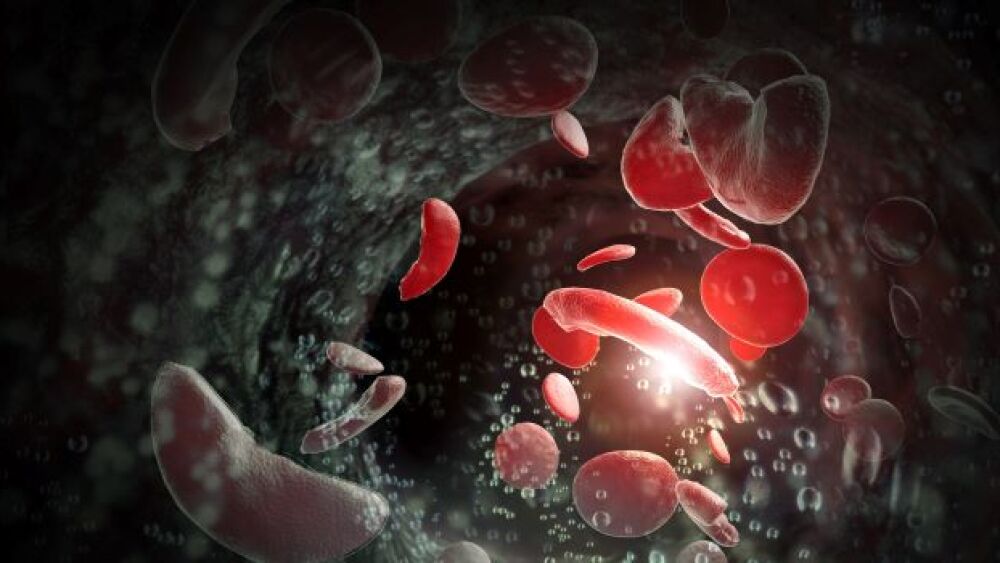Bluebird bio announced that it has placed its Phase I/II and Phase III trial of LentiGlobin gene therapy for sickle cell disease (SCD) on temporary suspension.
Bluebird bio announced that it has placed its Phase I/II and Phase III trial of LentiGlobin gene therapy for sickle cell disease (SCD) on temporary suspension. The cause is a Suspected Unexpected Serious Adverse Reaction (SUSAR) of acute myeloid leukemia (AML). Shares plunged 34% at the news.
HGB-206 is the company’s ongoing Phase I/II trial of LentiGlobin for SCD. It includes three cohorts, A, B and C. In Group C, a refined manufacturing process designed to increase vector copy number was used. Group C also received LentiGlobin for SCD manufactured from hematopoietic (blood) stem cells (HSCs) collected from peripheral blood after mobilization with plerixafor, instead of by way of bone marrow harvest, which was the method used in Groups A and B.
HGB-210 is their ongoing Phase III single-arm open-label trial. It is evaluating efficacy and safety of LentiGlobin for SCD in patients between two years and 50 years of age with sickle cell disease.
LentiGlobin, dubbed bb1111, had received a string of specialty designations from the U.S. Food and Drug Administration (FDA), including orphan drug designation, fast track designation, regenerative medicine advanced therapy (RMAT) designation and rare pediatric disease designation. It also received from the European Commission, orphan medicinal product designation and from the European Medicines Agency (EMA), was granted Priority Medicines (PRIME) eligibility.
Another bluebird product, Zynteglo (betibeglogene autotemcel; beti-cel) is a one-time gene therapy that adds functional copies of a modified form of the beta-globin gene into a patient’s own HSCs. One the patient has the BetaA-T87A-globin gene, they can produce HbAT87Q, a gene therapy-derived adult Hb, at levels that can eliminate or significant decrease the requirement for transfusions.
A patient who was treated more than five years ago in Group A of HGB-206 was recently diagnosed with AML. Bluebird is evaluating the patient’s AML to decide if there is any connection to the use of BB305 lentiviral vector in the manufacture of LentiGlobin gene therapy for SCD. Also, a second SUSAR of myelodysplastic syndrome (MDS) in a patient from Group C of HGB-206 was reported last week, which is being evaluated.
They noted that no cases of hematologic malignancy have been observed in any patient who received treatment with Zynteglo for transfusion-dependent Beta-thalassemia, which is licensed European Union and the U.K. However, beti-cel is manufactured using the same BB305 lentiviral vector used in LentiGlobin gene therapy for SCD.
“The safety of every patient who has participated in our studies or is treated with our gene therapies is the utmost priority for us,” said Nick Leschly, chief bluebird. “We are committed to fully assessing these cases in partnership with the healthcare providers supporting our clinical studies and appropriate regulatory agencies. Our thoughts are with these patients and their families during this time.”
Only four days ago, the U.K.’s National Institute of Health and Care Excellence (NICE), recommended against Zynteglo for use on the NHS. Zyteglo is intended for treatment of transfusion-dependent beta-thalassemia (TDT) in people aged 12 years and older who do not have a beta0/beta0 genotype, and for TDT patients when hematopoietic stem cell transplantation (HSCT) is appropriate but there is no suitable donor. TDT is the most severe form of thalassemia.
The NICE report noted that the follow-up on patients included in clinical trials of the therapy were not very long and the population was small. It also decided that there were “uncertainties” around the therapy’s cost-effectiveness, with the estimate for its use “considerably higher” than what it typically views as acceptable use of NHS resources.
“We are extremely disappointed with NICE’s decision not to recommend betibeglogene autotemcel as a treatment option in the U.K.,” said Romaine Maharaj, executive director, U.K. Thalassaemia Society. “We also feel disheartened that our patient experts were misquoted and used out of context and feel that NICE needs to rectify this. Having an option and the access to a potentially curable treatment is vital and should be offered to patients.”





